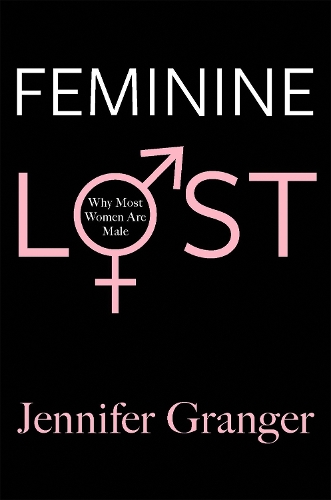
Feminine Lost: Why Most Women are Male
(Paperback)
Publishing Details
Feminine Lost: Why Most Women are Male
By (Author) Jennifer Granger
Hachette Book Group
Hachette Book Group
28th January 2014
United States
Classifications
Tertiary Education
Non Fiction
155.333
Physical Properties
Paperback
272
Width 152mm, Height 229mm
Description
Feminine Lost explores the premise that all human beings are constructed of two energies, one masculine and one feminine. With the rise of the feminist movement, many women have migrated to their masculine side, some to the extent of losing access to their feminine side altogether. As a consequence, men have found their way to their feminine side. This process has had huge consequences for relationships between men and women, often leaving them feeling unsatisfied within their relationships or lonely without one.Feminine Lost examines female archetypes-the Andro Woman, the Cougar, the Good Doer, and more - that have come to the fore since the feminist movement, pairing them with their masculine opposite, and looking at how the process of attraction functions under these circumstances. When the feminine principle breaks down, the ramifications are many. Feminine Lost breaks through the misunderstanding of what it means to be feminine it is not an outward appearance but something far more significant.
Author Bio
Jennifer Granger is a talented and intuitive transformational coach and author who started her practice 14 years ago in Melbourne, Australia. Having worked as a corporate insider on four continents over a 20 year period before that, she taps into both her business acumen and deep spiritual awareness to connect with her clients and help them reach their full potential.Within her coaching practice, Jennifer works with successful individuals from a wide range of creative, corporate, and entrepreneurial backgrounds who seek deeper meaning in their lives and who wish to overcome blocks that may be keeping them from being fully happy and at peace. Her worldwide client base spans from Sydney, New York, and Los Angeles to Monaco, Singapore, and London, and all kinds of places in between.As women and men continued to seek her out for help in understanding the complexities of their personal, professional, and intimate relationships, Jennifer developed a truly unique theory of what makes people tick. Over the years, she began to see more and more of the same types" emerging, as clients explained the challenges they faced each day at home and at work. Once Jennifer began to define men and women ever more clearly by their characteristics and actions, a new paradigm began to unfold, captured now in her ground-breaking 2014 book, Feminine Lost: Why Most Women are Male.
